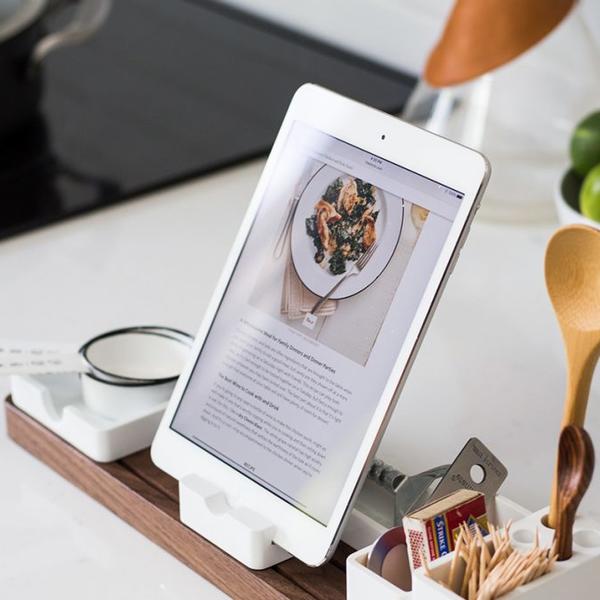The Health Center at Hudson Yards’ Nutritionist on Boosting Immunity
This story originally appeared on Hudson Yards.
As COVID-19 hit the U.S., Adena Neglia MS, RDN, CDN Director of Nutrition at The Health Center at Hudson Yards (not to mention, a nutritionist for the Brooklyn Nets), noticed a lot of online conversations about the “‘immune-boosting” foods, detoxes, and special supplements that would fight off the virus. And though she understands the desire to do whatever can be done to protect oneself and one’s family right now, she has to set things straight: “Most of what’s floating around is a bunch of pseudoscience, and may be more harmful than helpful,” Neglia says.
In fact, though she’s a nutritionist, she sees food as only a small piece of the immunity puzzle. “Nutrition is powerful, but not as powerful as the relationship you have with food,” she says. “No amount of ‘healthy’ eating will make an immune system strong if it means constantly worrying about calculating calories or whether you’re eating too many carbs or forcing yourself to drink two cups of organic celery juice in the morning.” Instead, here (as on the Health Center’s website), she shares a healthy way to think about “healthy eating.”
Give Yourself a Break
If running out of your favorite low-sugar yogurt is stressing you out, that’s not helpful. Prolonged stress can impair the body’s ability to fight off infection and lowers immunity.
Make Sure You Eat Enough
Restricting calories can also affect your ability to fight off illness. We get energy through food, and that energy fuels our immune system. Diets, detoxes, and cleanses, can actually decrease immunity.
Make Sure You Eat a Variety
Foods rich in vitamin C, vitamin E, and zinc boost the immune system. Many foods contain these micronutrients, but, for starters: Bell peppers, kiwis, and potatoes are rich in vitamin C. Spinach and almonds are good sources of Vitamin E. And there is zinc in red meat, baked beans, and chicken. Keep in mind that frozen and canned foods can be just as nutritious (if not more nutritious) than fresh. And don’t forget whole grains, protein, and dairy.
Know That You're Not the Only One Who May Not Be Controlling Your Cravings
Over-eating is a common response to fear. It’s a normal physical response to food scarcity too. Ever been on a diet when you've managed your intake during the day, only to raid the pantry after dinner? When the body senses it’s getting less, cravings and binge-eating increase. That’s because it’s trying to take care of you—to save you from starvation. So don’t beat yourself up overeating—or even thinking about eating—more than usual. And mindfully stock up, if you can, with pantry and freezer items to help your body sense abundance rather than scarcity.
Maintain Your Eating Schedule
Most of our normal activities have been canceled, but mealtime has not. There’s no reason to go for long stretches without food. In fact, going longer than 4-5 hours can make those primal instincts kick in, causing you to overeat next time you sit down to a plate of food.
Want to learn more tips about eating well at this time? Check out Adena's "Lunch & Learn" event, below!
This story originally appeared on Hudson Yards.

